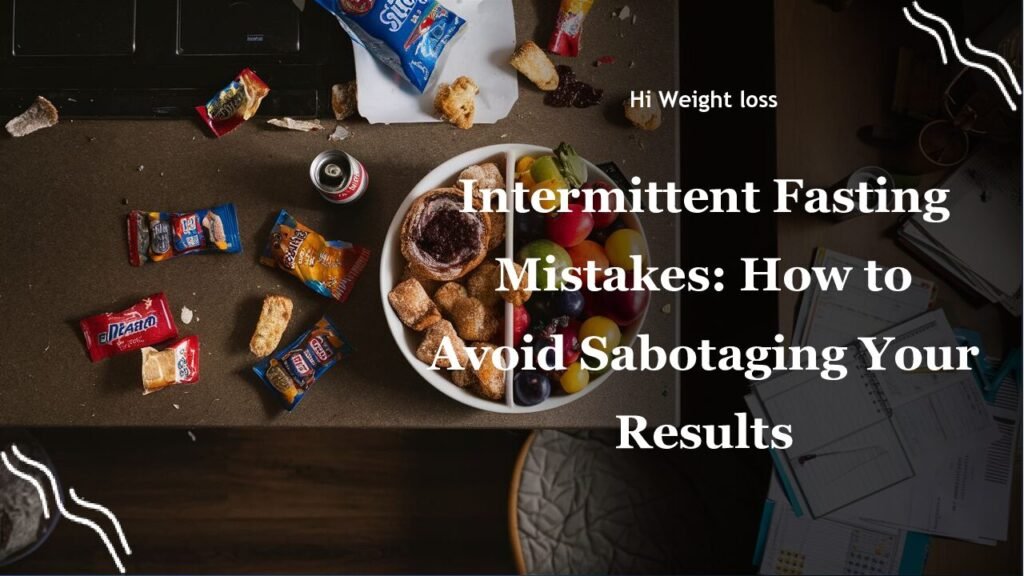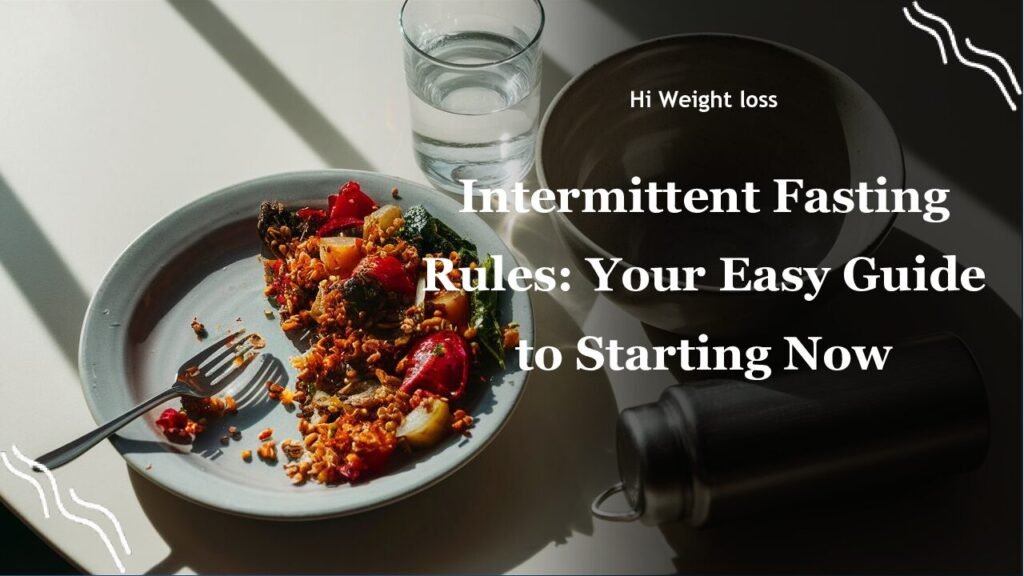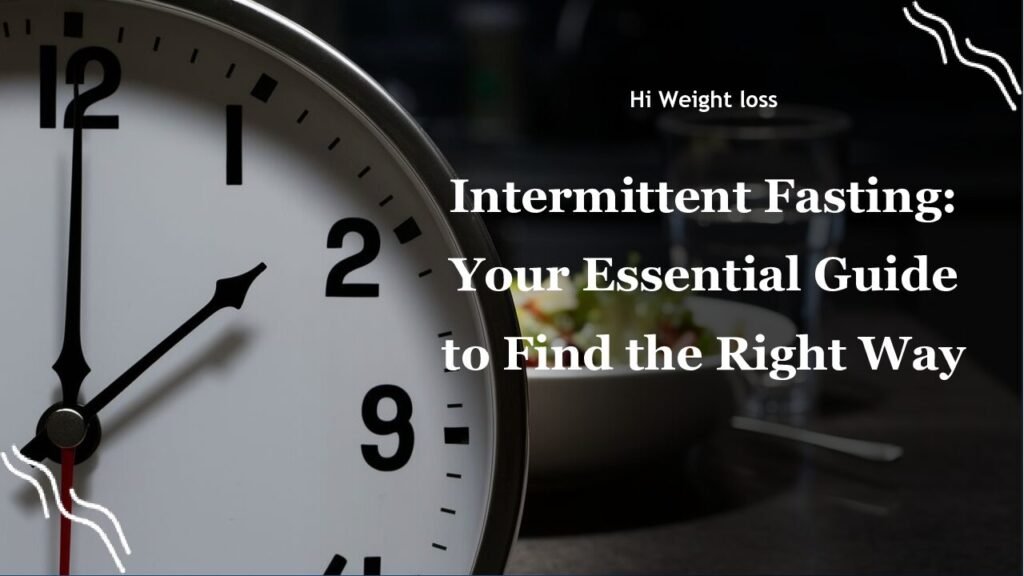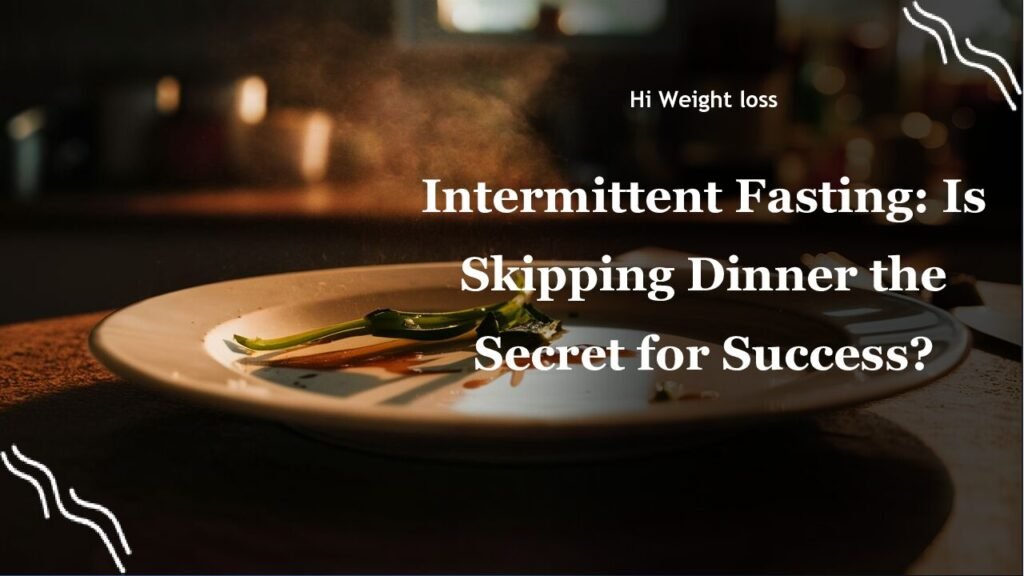“`
Are you struggling to see results with intermittent fasting? It’s frustrating when you’re putting in the effort but not seeing the benefits. Many people unknowingly make common errors that sabotage their progress. This article will guide you through the most common pitfalls to avoid when practicing intermittent fasting, so you can achieve your health goals effectively.
What Not to Do in Intermittent Fasting?
Starting Too Aggressively: The Gradual Approach
One of the biggest mistakes beginners make is jumping into extended fasting windows right away. I remember when I first tried intermittent fasting, I thought I could handle a 16-hour fast on day one. I ended up feeling extremely fatigued and irritable, not to mention completely unproductive. My body was screaming at me for food! It’s crucial to ease into the process. Start with a more manageable 12/12 or 14/10 schedule, allowing your body to adapt gradually. This method can prevent those unpleasant side effects.
Overeating During the Eating Window
Another common mistake is thinking that the eating window is a free-for-all. A friend of mine once said, “Well, if I’m fasting, I can eat whatever I want when I’m not!”. She was surprised to find that she wasn’t losing weight! It’s important to remember that intermittent fasting isn’t a license to overeat or binge on unhealthy foods. Instead, focus on eating balanced, nutrient-rich meals during your eating window. This includes lean proteins, healthy fats, whole grains, and plenty of vegetables. Your eating window should be about fueling your body, not just satisfying cravings. According to this resource, mindful eating is just as important as the timing of your meals.
Over-Reliance on Processed or Junk Foods
Imagine using your precious eating window to fill up on processed snacks. It defeats the entire purpose of intermittent fasting. Choosing junk food over whole, nutritious options can sabotage your health goals. My neighbor, who also tried IF, initially struggled with this, finding it easier to grab fast food. She soon realized that her energy levels were all over the place. She then made a conscious effort to focus on lean proteins, healthy fats, fruits, vegetables, and whole grains. By making that switch, the intermittent fasting started to have a positive impact on her body. It was a game changer for her. Remember, what you eat during your window matters just as much as when you eat, so prioritize whole, nutritious foods.
Expecting Instant Results
It’s easy to get caught up in the excitement of starting something new, like intermittent fasting. I’ve certainly been there! You might be eager to see quick results, but it’s important to be patient. Intermittent fasting isn’t a magic bullet. It takes time for your body to adjust and for you to see noticeable changes. I personally noticed improved energy levels and mood first, and then the weight loss followed. Don’t get discouraged if you don’t see changes overnight. Focus on consistency and understand that improvements happen gradually.

Skipping Meals Without Planning
Failing to plan is planning to fail, and this couldn’t be truer with intermittent fasting! If you go into your fasting window without a plan, you will be so hungry you’ll be tempted to eat anything in sight. It’s so much easier to reach for processed snacks when your stomach is screaming at you. When I started preparing my meals in advance, I found it much easier to stick to healthy options. Meal prepping ensures balanced, nutritious choices are available, making it much easier to resist unhealthy temptations. So, always plan what you’re going to eat during your window.
Neglecting Sleep and Stress Management
Have you ever noticed how poor sleep and high stress can derail even the best health plans? It’s incredibly important to get enough sleep and to manage stress when you are doing intermittent fasting. Poor sleep and stress can negatively impact your body’s ability to burn fat and regulate hormones, making IF less effective. During my most stressful weeks, I found that even sticking to my IF plan wasn’t as effective. When I focused on improving sleep hygiene and managing stress through meditation, I started seeing better results. So, pay attention to these factors!
Fasting Through Intense Physical Activity
Timing your exercise is crucial for optimal performance and results. I made the mistake once of doing an intense workout while fasting, and I felt completely drained and lightheaded. It’s definitely important to time your workouts around your meals to ensure your body has the fuel it needs. Make sure to eat a nutritious meal before or after your intense workouts. You don’t want to end up feeling weak or risk muscle breakdown.
Drinking Alcohol or Sweetened Beverages During Fasting
It’s critical to stay away from alcohol and sweetened drinks during your fasting window. Consuming alcohol or sugary drinks can cause an insulin release and disrupt your metabolic health. During IF, it’s important to give your digestive system a rest, and you do that by not introducing any unnecessary disruptions. According to this article, avoiding these beverages helps you maximize the benefits of IF, so stick to water, black coffee, or unsweetened tea.
Eating Too Much Starch and Sugar During Your Window
A big mistake you can make is eating too much starch and sugar during your eating window. A friend of mine ate a large plate of pasta during her eating window, and was wondering why the weight loss she was expecting was so slow. Too much starch and sugar can lead to high insulin levels, which can hinder weight loss and fat burning. You want to focus on the essential protein, fats and fiber from whole foods. Reducing starches and sugars can be very helpful in improving your results.
Table Summary of Common Mistakes
Here’s a table summarizing common intermittent fasting mistakes:
| Mistake | Why it’s a problem |
|---|---|
| Starting too aggressively | Can lead to fatigue, irritability, dizziness |
| Overeating during the eating window | Hinders weight loss and overall health |
| Over-reliance on processed foods | Sabotages benefits of intermittent fasting |
| Expecting instant results | Can lead to frustration and discouragement |
| Skipping meals without planning | Increases the risk of overeating unhealthy foods |
| Neglecting sleep and stress management | Reduces the effectiveness of IF |
| Fasting through intense physical activity | Can lead to low energy and muscle breakdown |
| Drinking alcohol or sweetened beverages during fasting | Disrupts metabolic health and insulin levels |
| Eating too much starch and sugar during the eating window | Hinders weight loss and fat burning |
Conclusion
Intermittent fasting can be a powerful tool for improving your health, but it’s important to avoid common pitfalls to see the best results. Starting too aggressively, overeating during the eating window, and relying on processed foods can sabotage your efforts. Remember to be patient, consistent, and focus on nourishing your body with whole, nutritious foods. Also, remember to prioritize your sleep, manage stress, and pay attention to the timing of your workouts. By avoiding these common mistakes and incorporating healthy lifestyle practices, you’ll be well on your way to experiencing the positive benefits of intermittent fasting. Now that you’ve learned what *not* to do, why not give it a try? Share this article with your friends to help them avoid these mistakes, too!
FAQ
Can I drink coffee during my fasting window?
Yes, you can drink black coffee during your fasting window. Just make sure it doesn’t have any sugar or milk, as these can break your fast. As this source notes, black coffee is generally acceptable.
How long does it take to see results from intermittent fasting?
It varies from person to person. Some people may see changes within a few weeks, while others may take longer. Consistency is key. Remember, it’s a gradual process.
Is intermittent fasting safe for everyone?
Intermittent fasting is generally safe for most healthy adults. However, it’s important to consult your doctor first, especially if you have pre-existing health conditions or are pregnant or breastfeeding.
What should I do if I feel extremely hungry during my fasting window?
If you feel excessively hungry, it’s important to make sure you are well hydrated. Also, make sure you are eating enough nutrient-rich foods during your eating window, so that you are satiated enough to make it to your next eating window.
Can I exercise while fasting?
Light to moderate exercise is generally okay during the fasting window. But, you should avoid intense exercise during your fasting window. It’s best to schedule high-intensity workouts around your feeding window.
“`



